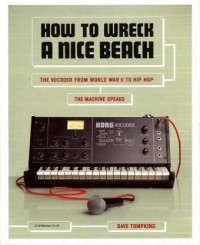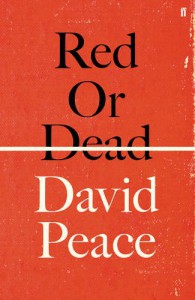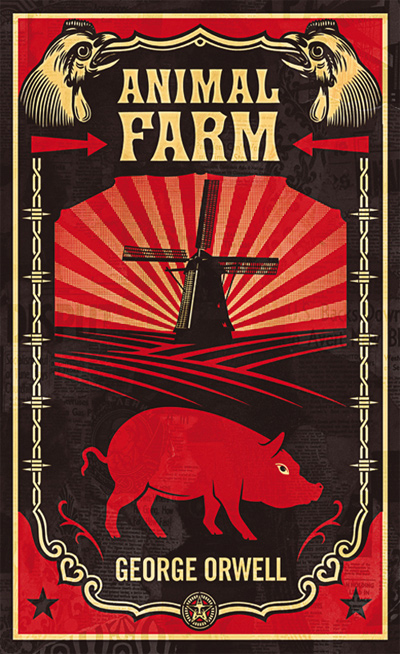Currently reading



Reading progress update: I've read 127 out of 392 pages.

Being a seasoned Londoner, Martin gave the body the ‘London once-over’ – a quick glance to determine whether this was a drunk, a crazy or a human being in distress. The fact that it was entirely possible for someone to be all three simultaneously is why good-Samaritanism in London is considered an extreme sport – like base-jumping or crocodile-wrestling.
 7
7
Reading progress update: I've read 101 out of 231 pages.

"Don't let's play games," said the badger. "You've killed me, you needn't mess me around as well. Take the Ring and the Tarnhelm and piss off."
 5
5
Reading progress update: I've read 40 out of 240 pages.

- “Why has this ‘conflict’ lasted for so long, who can stop it, and how?”
- Ignorance, the people, and by popular resistance and a refusal to remain silent were the first answers that came to mind. I sincerely believe that what is happening in Palestine would never have lasted this long if the public were properly informed about what had been really taking place in this part of the Middle East.
Frank Barat, London, July 2010. On the ghettoization of Palestine and the crimes of Israel and the US.
 3
3
Reading progress update: I've read 60 out of 336 pages.

Installed across the globe from 1943 to 1945, these fifty-five-ton phone scramblers would be used for D-Day, the Allied invasion of Germany, the bombing of Hiroshima, and the “dismemberment of the surrender instrument”—allowing Roosevelt, Truman, Churchill and Eisenhower to discuss the world’s fate with voices they barely recognized, voices not human but polite artificial replicas of speech rendered from digital pulses 20 milliseconds in length.

The SIGSALY Guam Terminal, codename NEPTUNE, with vocoder walls and turntables (left), photographed in 1945. Logistics concerning the atomic bomb missions and plans for the invasion of Japan were discussed over this secret radiotelephone link. (Courtesy National Archives/ NSAz/ Mahlon Doyle)
 7
7
Has the World Cup been that good? by Nick Hornby
Nick Hornby's latest piece for ESPN.
Brilliant and to the point. As always.

Maracanã Stadium in Rio de Janeiro is the original stadium that hosted the 1950 World Cup in Brazil.
 4
4
Reading progress update: I've read 123 out of 736 pages.

In the winter-time, in the night-time, they remembered him. And then they came to him. In the winter-time, in the night-time. Not cap in hand, not on bended knee. Not this sort. But still they came. Here to Leeds Road, Huddersfield. Here on October 17, 1959. They came – In the winter-time, in the night-time.
[...]
Every morning, Liverpool Football Club trained in the wind and in the rain, in the mud and in the fog, in the sleet and in the gales. Liverpool Football Club played in the wind and in the rain, in the mud and in the fog, in the sleet and in the gales. And Liverpool Football Club beat Blackburn Rovers in the wind and in the rain, in the mud and in the fog, in the sleet and in the gales. And in the wind and in the rain, in the mud and in the fog, in the sleet and in the gales, Liverpool Football Club won seven games in a row.
More nights of possibility, more days of opportunity with David Peace. GREAT.
 4
4
World Cup Hero, by Ian Hamilton
In fact he didn’t crack–in that game or in any other. For a minute or so after the booking he was out of action: gulping for air, doing his strange neck-jerk thing, but looking blank, as if he had forgotten where he was. And then he conquered it, he rallied and began looking for the ball. It is not often that a soccer match affords such close-ups. And it was perhaps this flash of inner drama, this visible raising of his game, that the 'Independent' had in mind when it declared: ‘If you believe football is a noble pursuit, Gascoigne, in that moment, was noble.’
- From the archive, Ian Hamilton on the rise and fall of Paul Gascoigne in Granta 45: Gazza Agonistes.
Read Ian Hamilton's World Cup Hero HERE.

 3
3
Writers Who Like Football
Thank you New Books and More for bringing this to my attention.
I can't resist adding a personal favourite one by Oscar Wilde:
"Football is all very well as a game for rough girls, but is hardly suitable for delicate boys"

Albert Camus

George Orwell

Jean-Paul Sartre
more on Guardian
 5
5
9 Songs Inspired by Literature
On Süskind's Perfume: The Story of a Murderer:
"Though this horror book never made it to the bestseller lists, it was a modest hit thanks in part to Kurt Cobain, who frequently mentioned that it was one of his favorite reads."
Err not quite. The book did have its own share in the hype (What? Why didn't I know that at all?)
Thanks to The Book Nerd for reblogging this!

The Song: “Sympathy for the Devil,” The Rolling Stones
The Novel: The Master and Margarita, Mikhail Bulgakov.
Listen here.
In 1968, Mick Jagger’s then-girlfriend, Marianne Faithfull, passed along a little book she thought he might enjoy. Jagger ended up writing “Sympathy for the Devil” after reading the novel, which starts when Satan, disguised as a professor, walks up and introduces himself to a pair of men discussing Jesus.
Mick later suggested that some of the lyrics may have been inspired by the works of Charles Baudelaire as well, which makes “Sympathy” the result of a pretty well-read rock star.

The Song: “Ramble On,” Led Zeppelin
The Novel: Lord of the Rings, J.R.R. Tolkien.
Listen here.
If you’ve ever listened to the lyrics of “Ramble On,” this is not going to come as a surprise to you. For example:
“'Twas in the darkest depths of Mordor
I met a girl so fair.
But Gollum, and the evil one crept up
And slipped away with her.”
For years I'd only ever paid attention to the “Ramble On” chorus, so this was a shock.

The Song: “Pigs (Three Different Ones)," Pink Floyd.
The Novel: Animal Farm, George Orwell.
Listen here.
Pink Floyd felt so strongly about Orwell’s barnyard take on revolution that they made a mascot from the book’s dictator pigs. The first incarnation of the famous Pink Floyd pigs popped up in 1976 for the photoshoot for 1977’s Animals album, which is based loosely around Animal Farm themes. "Pigs (Three Different Ones)" is about people in society with wealth and power.

The Song: “Wuthering Heights,” Kate Bush.
The Novel: Wuthering Heights, Emily Bronte.
Listen here.
An 18-year-old Kate Bush was inspired to write her breakout song after seeing just 10 minutes of Wuthering Heights on TV in 1977.
“I am sure one of the reasons it stuck so heavily in my mind was because of the spirit of Cathy, and as a child I was called Cathy. It later changed to Kate. It was just a matter of exaggerating all my bad areas, because she's a really vile person, she's just so headstrong and passionate and... crazy, you know? And it was fun to do, and it took - a night and a half?”

The Song: “Tales of Brave Ulysses,” Cream
The Novel: The Odyssey, Homer.
Listen here.
Even Eric Clapton can’t resist the Sirens from The Odyssey; this classic Cream song references the mythological enticing beauties (Clapton sure knew his share of those). Though it’s Clapton singing, the lyrics were written by Martin Sharp, who had just returned from vacation in Ibiza and was inspired by all of the exotic scenery - beaches and women alike, presumably.

The Song: “Breathe,” U2
The Novel: Ulysses, James Joyce.
Listen here.
Speaking of The Odyssey, it’s no surprise that The Edge and Bono would want to pay homage to their fellow Irishman James Joyce by setting “Breathe” on June 16. That’s the day Leopold Bloom embarks upon throughout the pages of Joyce’s Ulysses, and it’s also the day that Joyce fans everywhere honor his work by celebrating Bloomsday.

The Song: “Scentless Apprentice,” Nirvana
The Novel: Perfume: The Story of a Murderer, Patrick Süskind.
Listen here.
Though this horror book never made it to the bestseller lists, it was a modest hit thanks in part to Kurt Cobain, who frequently mentioned that it was one of his favorite reads. He liked it so much, in fact, he wrote a song about it and put it on the 1993 In Utero album. The book is about a man who kills young women and captures their scents in order to make the perfect perfume. I won’t spoil the ending for you - and neither does “Scentless Apprentice.”

The Song: “Holden Caulfield,” Guns N' Roses.
The Novel: The Catcher in the Rye, J.D. Salinger.
Listen here.
The much-awaited 2008 album Chinese Democracy contained a song called “The Catcher in the Rye” after the J.D. Salinger classic, but it’s surmised that the song is really about another culture-changing event that Holden Caulfield was involved in: the assassination of John Lennon in 1980. Lennon’s murderer was carrying a copy of the book when he pulled the trigger.

The Song: “The Ghost of Tom Joad,” Bruce Springsteen.
The Novel: The Grapes of Wrath, John Steinbeck.
Listen here.
Technically, Springsteen was inspired by John Ford’s big-screen adaptation of John Steinbeck’s Great Depression journey. “The Ghost of Tom Joad” is a 1990s version of The Grapes of Wrath, meant to serve as a reminder that modern times are just as difficult for some. Rage Against the Machine covered the song in 1997.
Teenage kicks right through the night

Saturdays were the worst. Mondays were the best. And this is a great, really great little book about teenage love in the 80s, between Eleanor, the weird new girl at school and Park, the geeky, cool biracial kid around the block (However, ethnicity commentary is clearly not the author’s forte).
Rainbow Rowell's story is heartwarming, charming and wonderfully paced and the main characters read like real teenagers for a change (I didn't believe A Fault In Our Stars. Sue me). The pop culture references aren't always convincing, but the progressive bonding of the two kids over comic books and 80s music is and I think this is a lot more important.
She’d started to write him a letter – she’d started it a million times – but that seemed like such a seventh-grade thing to do. What could she write? ‘Dear Park, I like you. You have really cute hair.’
Sweet, romantic, hopeful and full of teenage awkwardness, Eleanor & Park made me think of my first crush in high school and also wish there are lots of guys like Park and even more girls like Eleanor out there today.
That's not a little thing at all.
Reading progress update: I've read 83 out of 1016 pages.

At least I get to read about Tyrion and Daenerys. How worse than Book 4 can it be?
(What with over 1000 pages, it better be decent. I'm ridiculously busy these days).
 4
4
Reading progress update: I've read 56 out of 272 pages.

For they are Greek; we cannot tell how they sounded; they ignore the obvious sources of excitement; they owe nothing of their effect to any extravagance of expression, and certainly they throw no light upon the speaker's character or the writer's. But they remain, something that has been stated and must eternally endure.
 6
6
Reading progress update: I've read 91 out of 512 pages.

"Mr Arthur Scargill, however, comes from quite a different background: a lifelong union agitator, a known Marxist and an all-round troublemaker with the glint of battle in his beady little eye. So I put this question to you: which of these two figures would you rather trust with the future of the British mining industry? For this is the point about the miners’ dispute. For all Mr Scargill’s scaremongering rhetoric about jobs, families and what he likes to call ‘the community’, the argument isn’t really about any of these things. It’s about efficiency. If something isn’t paying its way, you close it down. It’s one of the first – and simplest – lessons that any businessman learns. Unfortunately Mr Scargill, bless him, doesn’t seem to have learned it yet."
Most brilliant depiction of pro-Thatcher populist hypocritical tabloid columnist ever!
 3
3
Reading progress update: I've read 78 out of 342 pages.
 I was the Baby with No Name. I’d been baptised quickly, on the spot; water had hit my head before milk had gone near the back of my throat. God waited for no baby in the slums. He took them back as soon as He’d given them, but He threw them away if their souls were still stained. He delivered them soiled but expected them back spotless. It was a race. Each day of life was a fight and a triumph, an endless race to stay a few inches in front of the greedy hand of God. God’s gift, Original Sin, had to be washed away in case God sent another of his gifts - fever, typhoid or whooping cough, smallpox, pneumonia or rats. So I’d been baptised. I was without sin. But I didn’t have a name either.
I was the Baby with No Name. I’d been baptised quickly, on the spot; water had hit my head before milk had gone near the back of my throat. God waited for no baby in the slums. He took them back as soon as He’d given them, but He threw them away if their souls were still stained. He delivered them soiled but expected them back spotless. It was a race. Each day of life was a fight and a triumph, an endless race to stay a few inches in front of the greedy hand of God. God’s gift, Original Sin, had to be washed away in case God sent another of his gifts - fever, typhoid or whooping cough, smallpox, pneumonia or rats. So I’d been baptised. I was without sin. But I didn’t have a name either.
 4
4
Reading progress update: I've read 121 out of 528 pages.

If left unchecked the groundless chatter about murder could grow like a weed, spreading through the community, unsettling people, making them question one of the fundamental pillars of their new society: There is no crime.
This really looks good (and already a page-turner!)








 2
2